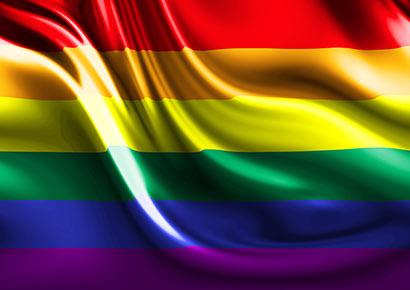What’s it like being gay in the Indian community?
 A new research project is being undertaken to better understand the experiences of South African Indians who are gay, lesbian or bisexual (LGB).
A new research project is being undertaken to better understand the experiences of South African Indians who are gay, lesbian or bisexual (LGB).
The study is a collaboration between psychologists from the University of KwaZulu-Natal, University of Pretoria, and Nelson Mandela Metropolitan University. Lead researcher, Suntosh Pillay, is a clinical psychologist based in Durban. He said this study will shed light on an area that has received no attention.
“There are almost no studies that focus in on Indians’ experiences of being LGBTI; and when they do, the nuances are missed in terms of race, culture, religion and geography,” said Pillay.
“For example, some researchers don’t realise that Indians can be Christian, Muslim, Hindu, etc. And the experience of being a Muslim lesbian versus a gay Hindu male is very different because of the different attitudes in those communities towards gender and sexual diversity.”
Pillay said participating in the survey is very straightforward. “It will take about 15 minutes and rest assured it is completely anonymous and confidential, and you will not be outed if you are in the closet, as there is no way to track who is answering it. The survey also provides a list of resources, like websites and call centers, if you want to seek help for struggling with your sexual orientation”.
He is also looking for people who are willing to be interviewed over the phone or in person, and they can contact him directly for this. “But for now, we just need people to answer these few questions online, so we can see what our initial findings are and develop a more detailed picture from there”.
Pillay is a member of the Africa LGBTI Human Rights Project, within the Psychological Society of South Africa (PsySSA) and he also presented an initial paper at the South African Psychology Congress in 2014 where he problematised the absence of gay Indian South Africans in locally produced research.
“There are countless untold stories of people’s struggles with coming out, how families react to this, and prejudice in the Indian community. Although attitudes are changing, through systematic research, we can uncover these stories and design community and social interventions.”
Pillay noted that globally, suicide amongst LGBTI people is higher than in the general population, due to the stress of living in a society that stigmatises gender diversity. “As psychologists, the mental health needs of LGB people are important to us and by participating in this research you will be making a difference to current and future generations of LGB people by sharing your experiences”.
To read more about the survey and complete it click here. For more information, email Pillay on suntoshpillay@gmail.com.
Leave a Reply